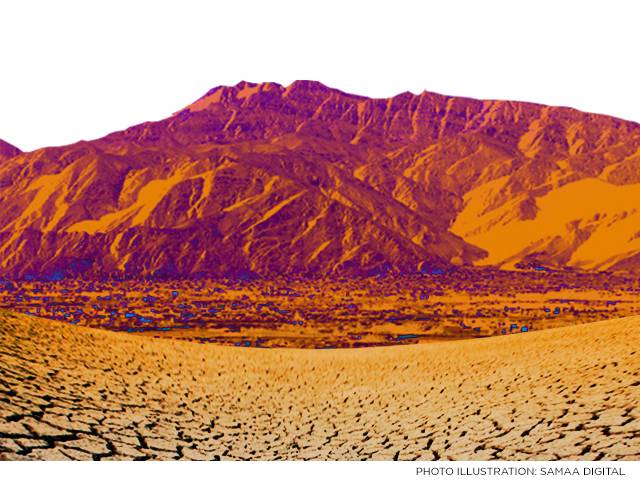Quetta, the capital of Balochistan is sinking
Shares

QUETTA - *Quetta is going dry and the governments, both provincial and federal, are not doing enough to save it.*
Recently, the Pakistan Metrological Department warned that nine cities in Balochistan — Quetta, Dalbandin, Nok Kundi, Gwadar, Panjgur, Pasni, Ormara, Turbat and Jiwani — are at risk of drought because they didn’t receive enough rain.
This, coupled with the bloating population, is putting even more pressure on the city’s fragile ecosystem.
More than three million people live in Quetta. The problem is that the city only has facilities for 250,000 people. It needs around 50 million gallons of water a day but only gets 30 million gallons.
To overcome this shortage, the Balochistan Water and Sanitation Authority has built 400 tubewells in the city to suck water out of the ground. But 100 of them aren’t working.
The Public Health Engineering Department has also built hundreds of tubewells. There are also 5,000 illegal tubewells operating in the city.
As a result, the groundwater level has lowered to an alarming degree. Experts say that this has led to the city sinking 10cm.
“If the groundwater level is not increased, this will lead the people of Quetta towards mass suicide,” remarked geologist Din Muhammad Kakkar.
Kakkar, who teaches at Balochistan University, said that illegal drilling and building tubewells is what started the “disaster”.
As the water level is going down, cracks have started appearing on the ground in different places, he explained. “People thought that tubewells would solve their problems, but they didn’t realise that it made the situation worse,” Kakkar remarked.
He said that if the government fails to take any concrete steps and make a proper policy, Quetta will become a desert.
*Is the Mangi dam the solution?*
All eyes are on the Mangi dam to solve the impending water apocalypse in Quetta. But Kakkar believes that it won’t be enough.
The dam will be able to provide only 8.1 million gallons of water. It does not have the capacity to provide enough water for three million people, he said.
The province needs more dams to meet its water demand. Projects such as the Ghazaband dam have been delayed because local residents aren’t sure they want it. The government needs to resolve their issues, said Kakkar.
After coming into power, Balochistan Chief Minister Jam Kamal imposed a water emergency in the province.
